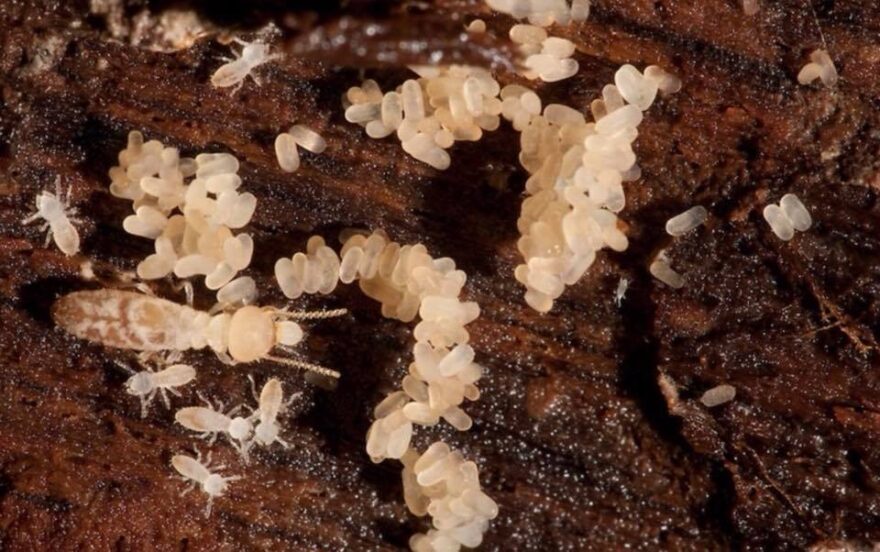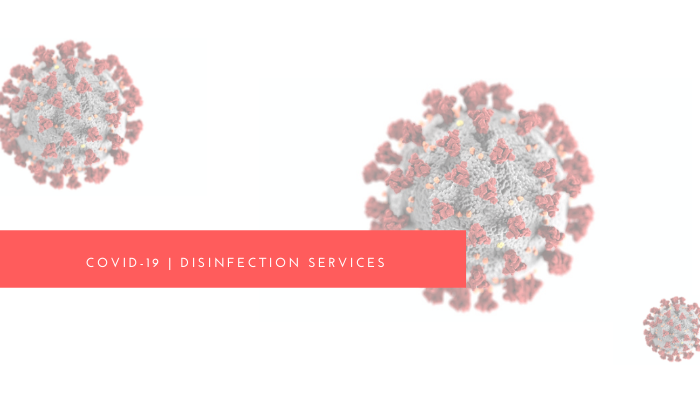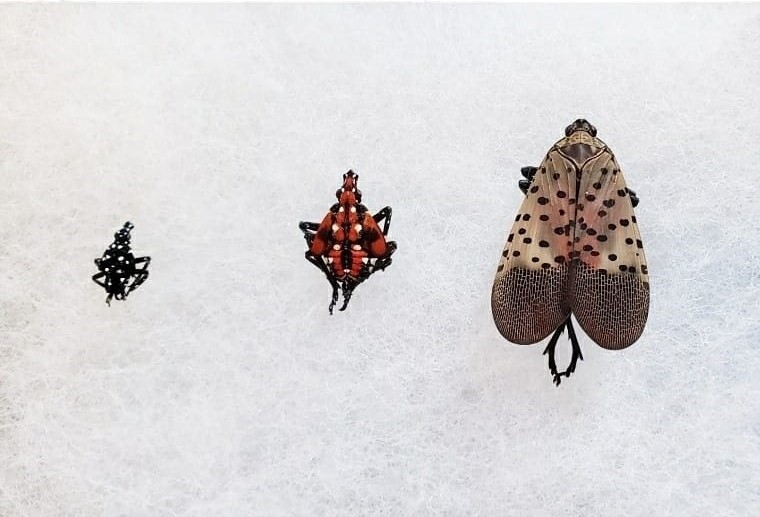Category Archives: Blog
Different Types of Pennsylvania Spiders (and Are They Pests?)
March 19, 2021Dominion is receiving many calls this year for residents requesting help for spiders — inside and outside their homes! Most folks who report spider issues in Lancaster, York, and Central PA, seem to be bothered in spring, and again in the fall. This is when spiders try to enter homes looking for refuge from the falling temperatures.
Let’s look at different kinds of spiders found locally.
Save Your Trees from Spotted Lanternflies
If you’re seeing spotted lanternflies in Lancaster County, you’re not alone. These plant-hoppers showed up in Lancaster just a couple of years ago and are seen over the whole county.
Last year, Dominion treated mostly trees in the northern parts, including Lititz, New Holland, Ephrata, and other towns in the spring. But, by late fall, the sapsuckers were targeting trees in every town in Lancaster County, including Manheim, Hempfield, Millersville, Mount Joy, and Willow Street.
Here’s how they ruin trees and what you can do to help prevent them from spreading to other areas and protect your own property.
Termite Swarm or Ants? We Can Help with Both
It’s that time of year, when termite swarmers emerge to start a new colony. It can look like an indoor hurricane when a healthy colony of termites swarms out of one of your baseboards or basement sill plate.
Thousands of these ant-looking creatures will fly to the windows to get out and start a new colony. If you’re seeing termite swarmers in your house, it’s time to call for professional termite control.
Both termites and ants are destructive. Do you know the difference?
Here’s How to Get Rid of Big Black Ants | Carpenter Ants
It is usually in spring when folks in Lancaster or York see big black ants. Carpenter ants, as they are referred to by professionals, are not something to fool around with. These black ants are known to destroy wood by chewing it and removing it to make larger nest areas.
Sometimes the “frass,” or shavings they produce, can be seen on the floor inside or on the ground outside where the worker ants are depositing their construction waste. Sometimes these shavings can be visible in certain trees where carpenter ants have chosen to nest above in holes and are throwing out their trash onto the ground below.
That frass is a sign to get professional help.
Lancaster and York: Get Rid of Small Ants in Your House
It’s that time of year when small ants emerge to find food sources and to start new colonies! Small ants, as most Lancaster and York residents refer to them, are usually Odorous House Ants, a more recent ant that has emerged in Pennsylvania.
Dominion Pest Control president Gregory Pettis says, “It wasn’t until 1995 that we saw this ant species emerge and become the dominant ant in Lancaster and York counties.”
So how can you get rid of them?

Pennsylvania, Get Rid of Termites with the Power of Bora-Care
February 22, 2021Termites are nasty, wood-destroying beetles that are often mistaken for flying ants. They can do severe damage to ceilings, floors, furniture…wood surfaces in general. For Pennsylvania property, few insects are more dangerous than termites.
Dominion Pest Control technicians are trained experts in the application of reactionary liquid termite treatments and pretreating for termites and other wood destroying insects with borate treatments, specifically, the use of Bora-Care. This is an increasingly popular choice of termite control in Pennsylvania.

The Best Ways for Getting Rid of Mice
January 20, 2021Cold temperatures outside can motivate mice and other critters to head indoors. It doesn’t take much to unwittingly invite a mouse or two into your home. But mice reproduce quickly.
Before you know it, those two little mice that entered your home at the start of temperatures dropping are an infestation. So what are the best ways to get rid of them?

Services For COVID-19: How the Pros Do It
December 14, 2020Dominion Pest Control, mostly known for its expertise in pest and wildlife control, has played a crucial role in helping nonprofits, homeless shelters, and health clinics at higher risk for COVID-19 by providing support, products, and equipment.
Dominion continues to help these organizations while it also offers commercial disinfecting services to businesses throughout the Susquehanna Valley, helping to mitigate the risk of contagions and slow the spread of COVID-19.
What are a Spotted Lanternfly’s Natural Enemies?
November 17, 2020By now, you’ve likely learned about the threat that spotted lanternflies post to Pennsylvania’s agriculture industry. The state deemed the spotted lanternfly an invasive species because it feeds through tree bark, excreting a honeydew that’s harmful to trees and plants. The Pennsylvania Department of Agriculture issued an order that calls upon Pennsylvania residents to follow its guidelines to prevent the spread of spotted lanternflies.
At the onset of the infestation, it seemed as though the spotted lanternfly had no known enemies besides humans. We are seeing that play out differently now. Some natural enemies attack the spotted lanternfly and there do exist some natural lanternfly predators. Scientists continue to study possible biological control of the non-native, invasive spotted lanternfly.

When and How to Kill Spotted Lanternflies: Fall Control is the Answer
October 7, 2020The spotted lanternfly continues to invade Pennsylvania and negatively impact orchards, tree nurseries, forests, vineyards, and properties in general. The spotted lanternfly is a major threat to the state’s wine and beer industry, too.
SLFs feed on tree sap and excrete a tree-suffocating honeydew (partially digested tree sap) that causes damaging mold to form.
The Pennsylvania Agriculture Department recommends treating your property now, for double the impact. Here’s why: